You are here
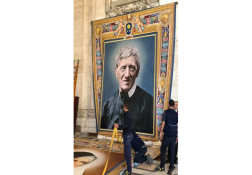 August 11 2023
WHAT HATH NEWMAN WROUGHT
August 11 2023
WHAT HATH NEWMAN WROUGHT
According to Newman, the Oxford Movement was launched by a sermon in 1833 ("National Apostasy") in which John Keble fussed at the nation for not being more like the prophet Samuel. This was followed by a series of 90 "Tracts for the Times."
Read more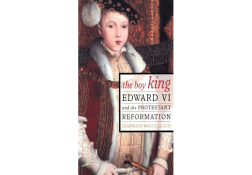 August 09 2023
Edward VI: The Boy-King and the Protestant Reformation
August 09 2023
Edward VI: The Boy-King and the Protestant Reformation
There was not immediate enthusiastic agreement about these monumental changes, and there were some who were willing to fight and even die for the old Latin mass. But in the end, the Church of England upheld the Bible as its primary authority, guided by the Bible's central message of justification by grace through faith alone. It shifted focus from the Medieval sacerdotal priesthood to universal priesthood (of all believers).
Read more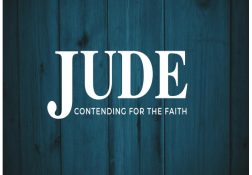 August 06 2023
No Golden Age of the Church -- The Book of Jude
August 06 2023
No Golden Age of the Church -- The Book of Jude
Although Jude spends most of his letter talking about such ungodly people, his real focus is on "those who are called, sanctified by God the Father, and preserved in Jesus Christ" to "contend earnestly for the faith which was once for all delivered to the saints." This is to be their focus. Yes, they are to watch out for those who have crept in unnoticed and who deny the Lord Jesus Christ.
Read more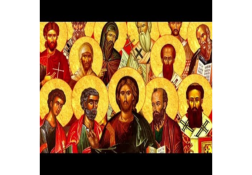 August 04 2023
THE INFLUENCE OF THE CHURCH FATHERS
August 04 2023
THE INFLUENCE OF THE CHURCH FATHERS
The fathers as individuals bequeathed to us much that is edifying, spiritually stimulating and interestingly and charmingly useful in our Christian nurturing, particularly those who have come to be regarded as the most significant and well-known as the "oft-quoted" in matters of pastoral concern and development of life in Christ. Many Protestant publications are raising the profile of the fathers in our time.
Read more July 25 2023
Heresy! Why Christians must confront false teaching
July 25 2023
Heresy! Why Christians must confront false teaching
The Henrician Canons of 1535 referred to heresy as "fireballs by which the Church is inflamed and continues to burn miserably". These 16th-century reformers said the devil "daily piles up even more firewood in the shape of false opinions". These would be thrown by Satan into the Church, to cause as much trouble as possible and lead people astray.
Read more July 21 2023
Why Do Christians Call God Father?
July 21 2023
Why Do Christians Call God Father?
The power of the word "Father" is its specificity. We have only one biological dad; usually, that's the only person we will call "Father." Sometimes, if our dad has died or departed, we will use the term "Father" for an adoptive dad.
Read more July 12 2023
Anglicans, Let's Stay True to Our Confessional Heritage
July 12 2023
Anglicans, Let's Stay True to Our Confessional Heritage
Ensuring that clergy embrace, and laity study, the Articles and our other often forgotten but official formularies (the 1662 Book of Common Prayer and the first and second Books of Homilies)--could help to fix the doctrinal incoherence Anglicans have grappled with for decades.
Returning to the Articles could help to fix the doctrinal incoherence Anglicans have grappled with for decades.
Read more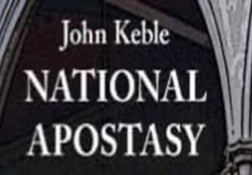 July 08 2023
"NATIONAL APOSTASY"
July 08 2023
"NATIONAL APOSTASY"
But today when someone pulls the "great tradition" card they almost always mean something like: "I don't buy that Anglicans are Protestant" or "I don't accept the Reformation or the Elizabethan Settlement as determinative for describing Anglican identity" or "I subscribe to a conciliar definition of 'Anglicanism' as opposed to a confessional definition."
Read more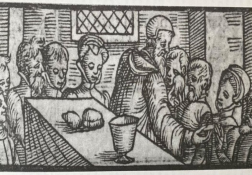 June 17 2023
JUNE 16: BIRTHDAY OF ANGLICANISM IN AMERICA
June 17 2023
JUNE 16: BIRTHDAY OF ANGLICANISM IN AMERICA
Since Thomas Cranmer's 1552 Book of Common Prayer, and in all its revisions until the 1979 Prayer Book revision, the communion table was called a "table" or "holy table" so that is wasn't confused with an "altar" and the medieval Roman Catholic understanding of the sacrament. On an altar a sacrificing priest re-offers Jesus as a sacrifice.
Read more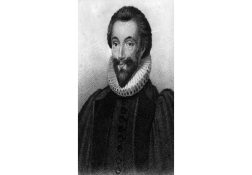 June 11 2023
THE REPUTATION OF JOHN DONNE RE-DONE
June 11 2023
THE REPUTATION OF JOHN DONNE RE-DONE
The necessity and effectuation of a substitutionary atonement was at the foundation of Donne's proclamation of the Gospel of our Savior: "He would not spare, nay he could not spare himself. There was nothing more free, more voluntary, more spontaneous than the death of Christ . . . And behold how that Lord that was God, yet could die, would die, must die for your salvation" [Death's Duel]. Sermon, 25th February 1631, no 192, Selected Prose, Penguin Classics, 1987].
Read more


